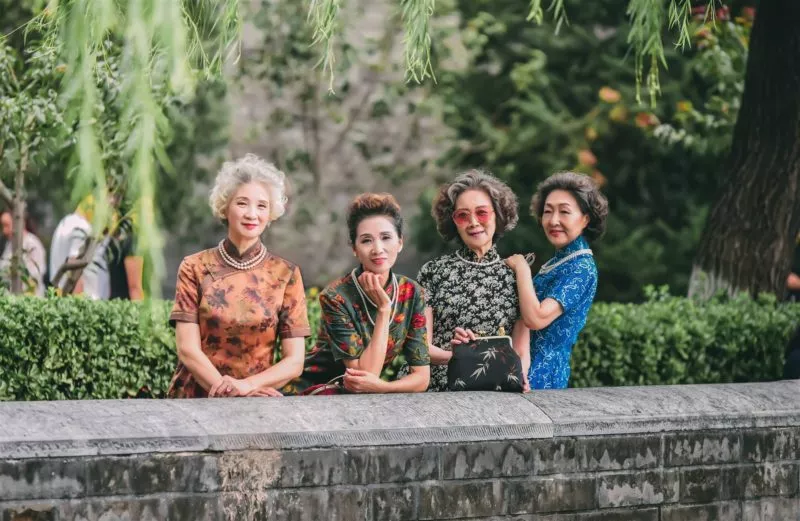If there is one group that seems to hold the keys to the promised land of Chinese consumerism, it is the “post-95s”. This moniker refers to those born after 1995, also known as Gen Z in the West, who have come to redefine the Chinese economy with their individualism, their search for what being Chinese means, and their preference for authentic brands and meaningful experiences.
It can often be a confusing proposition for brands to market to this group of twenty-somethings, as their tastes seem so different from the generations that came before them.
But it doesn’t have to be complicated: a series of interviews by Chinese mag Digitaling revealed exactly how they think and what they prioritise in brands. As it turns out, they are not so different from Gen Z in the West.
1. They see consumption as a way to make themselves feel better
Young people in cities everywhere are lonely, but perhaps even more so in China. Faced with gruelling work hours, sky-high house prices, and little holiday time to visit their families, they turn to products to self-medicate emotionally. So they find comfort in seemingly mundane things like “competitive shopping”, where one attempts to snag as many low-cost deals as possible; enjoying the sight of neatly stacked rows of soft drinks in the fridge; or going to the supermarket to buy steak for themselves (which doesn’t come cheap in China).
Consumption is a way for them to gain a sense of control over their lives, but also to relieve anxiety, socialise, and of course, project status.

Consumption is a way for them to gain a sense of control over their lives, but also to relieve anxiety, socialise, and of course, project status. It has become a multi-dimensional experience that transcends a simple transaction.
2. They won’t fall for consumeristic tropes
Indeed, as with young people all over the world, they prefer to spend on experiences rather than objects. Aspirational products that promise to deliver untold happiness don’t attract them, and that is because they feel that they don’t need to be told how to be happy.
Often-used slogans like “Working is hard, buy ___ to reward yourself” or “Using skincare products now means you will look better in 20 years” have little effect on post-95s, who are keen to express their individualism for themselves, not to impress others.
3. Gifting gives them twice the pleasure
The custom of gifting is a key part of Chinese culture. Often, business deals and relationships hinge on intricate and subtle gestures that convey respect or appreciation. For post-95s, buying things to give as gifts actually translates to a double source of pleasure: the pleasure of buying the thing in the first place and the pleasure of making someone happy with the gift.
Young people prefer to spend on experiences rather than objects.
Indeed, one of the interviewees said that he likes to give family and friends things that are practical and frequently used because they can make his family and friends miss him more often and thus strengthen their relationship.

4. A “cult” brand means nothing if it doesn’t solve their pain points
For post-95s, whether a brand has achieved cult status is fairly irrelevant to their purchase decision. In a way, their purchasing philosophy is half utilitarian, half emotional: the product has to successfully address a pain point, and also assuage their emotional needs.
For example, one respondent said that she supports a brand of cleaning products not only because they work well, but also because the brand prioritises environmental sustainability, which is something that she cares about. This makes her feel like she is making a difference when buying the brand’s products.
5. Saving money is important, but not at the expense of daily happiness
While Chinese people are known as some of the world’s best savers, recently there has been a shift: reports of young people in debt cast doubts as to whether young Chinese were still as committed to saving as previous generations.
The truth is that, while post-95s are financially aware and do save money for emergencies or large purchases, they are less willing to sacrifice their daily happiness to do so.

China’s post-95 generation share some important traits, including a deep desire to find brands that speak to who they are and the journey they are on.
Indeed, one interviewee believes that both consumption and saving can be regarded as investments: the first is like investing in oneself, while the other is investing for financial returns.
In this respect, saving is a good choice when the return is higher than investing in yourself. If consumption can bring greater returns (which might not be monetary), then he believes it more appropriate to spend money on consumption.
Conclusion
Overall, China’s post-95 generation is no more mysterious than the West’s Gen Z. Indeed, they share some important traits: a heightened awareness of the pitfalls of consumerism, a predilection for socially responsible companies, and a deep desire to find brands that speak to who they are and the journey they are on.
Read more:









